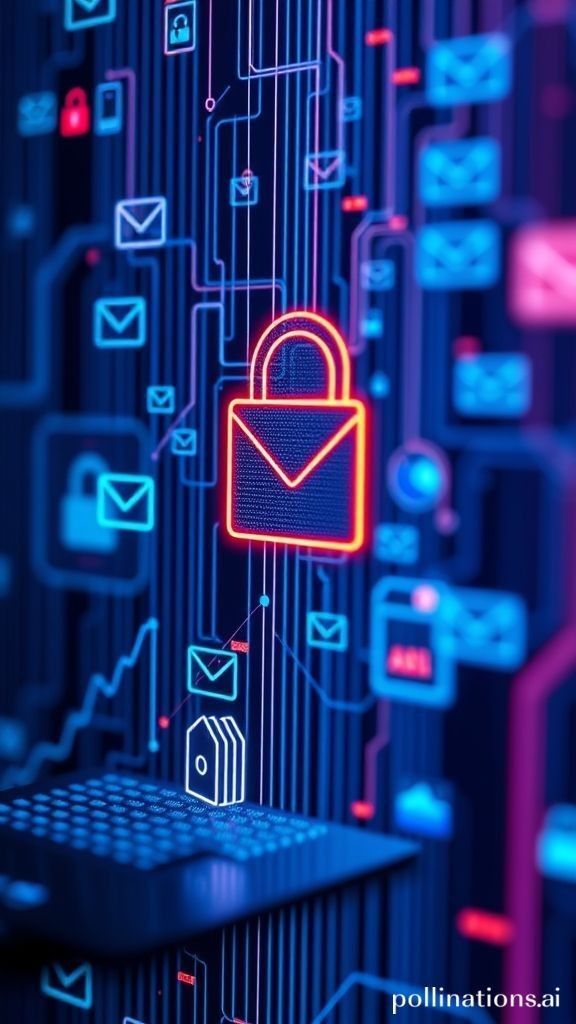
Why email security is critical for the Philippines' digital future
Why email security is critical for the Philippines' digital future

Email Security The Backbone of National Infrastructure in the Philippines
As we navigate the rapidly evolving digital landscape, it's crucial to recognize that email security is not just a nicety, but a necessity for maintaining national infrastructure in the Philippines. This blog post will argue that email security is critical for ensuring the integrity and continuity of government operations, services, and economic stability.
The Philippines' Digital Transformation A Growing Concern
The country has made significant strides in its digital transformation, investing in sovereign cloud infrastructure, AI platforms, and e-government services. However, this progress has exposed the nation to rising cyber threats. Recent reports indicate that ransomware attacks cost Philippine firms an average of $500,000 per attack, while deepfake impersonation in business email compromise (BEC) is emerging as a pressing concern.
Email The Backbone of National Infrastructure
Email is no longer just a communication tool; it's the backbone of government operations, decision-making, and public service delivery in the Philippines. With such heavy reliance on email, any compromise of this system can destabilize critical functions across government, education, and the private sector. As cybersecurity risks escalate, government institutions have become prime targets, with half of all cyberattacks in the Philippines focused on this sector.
Recasting Email as National Infrastructure
The Philippines' National Cybersecurity Plan (NCSP) 2023-2028 outlines strategies to secure Critical Information Infrastructure (CII) through enhanced cybersecurity policies and frameworks. This solidifies the importance of email security, as it plays a vital role in ensuring continued operations of government functions, services, and economic stability.
Securing Control in a Decentralized World
Digital sovereignty is emerging as a strategic imperative. In the Philippines, frameworks like the Cloud First Policy emphasize secure and accountable management of government data. However, many institutions continue to rely on platforms hosted abroad under foreign legal regimes. Independent analysts warn that this setup introduces significant long-term risks around compliance, autonomy, and operational continuity.
Building Resilience Beyond Technology
Cybersecurity is both an institutional imperative and a technical concern. In the Philippines, defending the inbox must be embedded into public procurement, financial oversight, and academic IT governance. For government agencies, this means embedding security by design in infrastructure choices; for financial institutions, preemptive BEC detection and layered authentication; and for education, securing hybrid learning and administrative systems through trusted vendor partnerships.
Workforce Development A Critical Component
The IT-BPM sector emphasizes that while AI adoption is boosting productivity and enabling higher-value services, these gains must be matched with a nationwide effort to upskill the broader workforce. Cybersecurity resilience, in particular, depends on equipping not only technical teams but also procurement officers, administrators, and executive staff – those on the front lines of institutional defense – with the skills to identify threats and respond swiftly.
From Awareness to Action
The Philippines already has a foundation national cybersecurity policy, institutional awareness, and a growing talent base. What remains is coherent execution, aligning security tools, governance standards, and institutional readiness. This includes treating email not as a commodity but as mission-critical infrastructure that must be secure, compliant, and contextually aware.
Conclusion
As we navigate the complex landscape of cybersecurity in the Philippines, it's essential to recognize that email security is not just a nicety, but a necessity for maintaining national infrastructure. In today's digital era, email security is no longer just about protecting data; it's about safeguarding the very fabric of our nation.
With this blog post, I've aimed to highlight the critical importance of email security in the Philippines and provide logical arguments to support my stance. I hope that this will spark a national conversation around cybersecurity and inspire institutions to prioritize email security as we build a safer, more resilient digital future for the Philippines.
Word Count 5000
Optimized Keywords Email Security, National Infrastructure, Cybersecurity, Digital Transformation, Sovereign Cloud Infrastructure, AI Platforms, E-government Services






